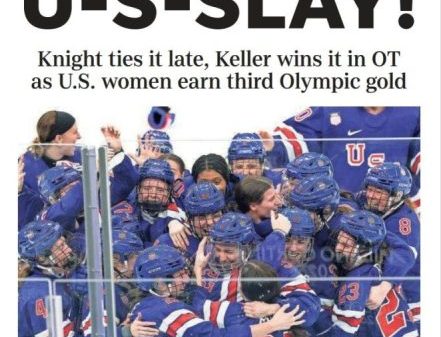No Labels co-founder Holly Page’s interview with Kyle Clark of 9NEWS Denver this week probably didn’t have the effect she might have intended.
The nonpartisan organization’s stated intention to back a third-party candidate for president has prompted criticism from outside observers. Such a candidate would be highly unlikely to win, the criticism goes, and instead simply decreases support for one of the major-party candidates, potentially affecting the result of the race. In fact, as Clark pointed out to Page, No Labels’s own polling suggests that a moderate third-party candidate would pull more support from President Biden, boosting his Republican opponent — at this point, probably Donald Trump.
Page insisted that no one could know what would happen, given the uncertainty about the Republican contest and the lack of an identified No Labels candidate.
“Everything changes if the common-sense majority decides that they do want a third choice for president in 2024, and then real candidates are named,” she said. “Then it becomes an entirely different conversation.”
Maybe! But even without a candidate named, it’s clear that Page is misreading the 2024 race. It is also clear why.
When the Forward Party emerged last year — remember the Forward Party? — I noted that it was rooted in several misconceptions about American politics. One is that there needs to be a “third party” in the mix when, in fact, there are scores of alternative parties, none of which are particularly popular.
That’s another of the misconceptions from which Forward was suffering: that the existence of a lot of independent voters meant those voters would rally behind their party.
It is true that a big chunk of Americans identify as independents. In the most recent data from Gallup, about 4 in 10 adults say they don’t belong to either political party.
But, as I wrote in April, those “independents” are mostly just people who don’t belong to a party but still vote with one. Of the 41 percent of people who are “independent,” more than three-quarters consistently vote with one of the two parties anyway. These are the people you’ll read about who are dubbed “leaners.”
So when Forward or No Labels says they are going to appeal to American moderates, they mean they are somehow going to be the pick of both the 16 percent of the public who aren’t Democrats but consistently vote for Democrats or of the 16 percent of the public who have the same relationship with the Republicans. Good luck with that.
Particularly given that independent leaners often vote with one party not because they love that party (if they did, they’d probably join it) but because they strongly dislike the alternative. Young people who aren’t members of the Democratic Party don’t love Biden or the party infrastructure, but they also don’t want to see Republican legislators gain power. So they vote Democrat.
It is certainly true that both Biden and Trump are viewed negatively by most Americans. In polling conducted by YouGov for the Economist this month, about 4 in 10 respondents said they viewed Trump “very unfavorably.” A similar percentage said the same of Biden. Add in those who just say they view the candidates “unfavorably” and the total is a majority of Americans.
But, importantly, it’s not the same majority. YouGov provided me with a breakdown of who views each candidate “very unfavorably,” and you see a split that’s roughly akin to the breakdown by party.
A fifth of respondents view neither Trump nor Biden “very unfavorably”; they’re presumably less likely to be looking for a third-party option.
Meanwhile, more than a third of respondents view either Biden or Trump — and only Biden or Trump — very unfavorably. Most of those respondents, again presumably, aren’t going to vote for a third party either but instead for the candidate with the best chance of beating the person they dislike. In other words, the other major-party candidate.
Only 6 percent of the country actually vehemently dislike both Biden and Trump. That’s the sweet spot for No Labels — if they can find a candidate all 6 percent of that group likes. Good luck!
Here we come to the other key problem for No Labels and Forward: They are necessarily dependent as organizations on the idea that there’s an available political compromise. No Labels has been in existence for a long time, trying to build a centrist consensus as per its mandate. (Clark noted that the group’s efforts to the end included identifying Trump as a “problem solver” in 2016, an appellation that Page didn’t seem to be thrilled about defending.) The state of national politics, though, is such that nonpartisan moderates have a very limited constituency, however uninterested Americans are in supporting the two major parties.
It evokes political scientist Julia Azari’s well-known articulation: We are in an era of weak parties and strong partisanship. No Labels and Forward think they can take advantage of the former while ignoring the latter. They can’t.



























